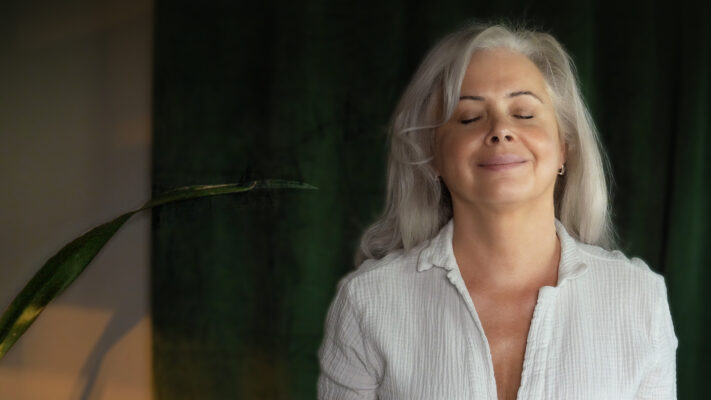The Poisonous Backpack: How Resentment Can Take Over Your Life
Resentment is a natural human emotion that we experience towards someone or something that we perceive has wronged us. However, holding onto resentment for too long can start to consume us and affect our mental and emotional well-being. It can be challenging to let go of resentment, as we may feel hurt, betrayed, or fear vulnerability. But the thing is, holding onto resentment only hurts us in the end, and it’s crucial to let go to find healing and move forward. In this article, we will explore the impact of resentment on our lives and provide practical tips and techniques for letting go of resentment. We will also share a personal story about the journey of letting go of resentment to provide insight and inspiration for those struggling with this challenging emotion.
I’ve seen and experienced firsthand the devastating effects that holding onto resentment can have on our mental and emotional well-being. It’s like carrying around a heavy backpack full of rocks that we just can’t seem to put down.
But here’s the thing: we don’t have to carry that backpack forever. We can learn to let go of resentment and free ourselves from its grip.

What Is Resentment?
So, what exactly is resentment? Well, at its core, resentment is the feeling of bitterness or anger that we experience towards someone or something that we perceive has wronged us. It’s a natural human emotion that can be triggered by a variety of different experiences, such as betrayal, disappointment, or injustice.
When we feel resentment, it can manifest in a variety of ways. We may feel a deep sense of hurt or anger towards the person or situation that caused our pain. We may replay the situation over and over in our minds, trying to make sense of what happened and why. We may even start to withdraw from others, feeling as though we can’t trust anyone or anything anymore.
While it’s natural to feel resentment in response to a perceived wrong, it’s important to be aware of the potentially toxic effects it can have on our mental and emotional well-being. If we let our resentment fester and grow, it can start to consume us and make it difficult for us to move forward in a healthy way.
The Impact of Resentment
Resentment can have a significant impact on our lives, affecting our relationships, work, and overall quality of life. It can lead to feelings of isolation, depression, and anxiety, and make it challenging to trust others. Letting go of resentment can be a challenging process, but it’s crucial for our mental and emotional health, allowing us to move forward and find healing.
One way to think of resentment is like a poison that we drink, hoping that the other person will be hurt by it. But in reality, holding onto resentment only hurts us in the end. It can prevent us from experiencing joy, happiness, and connection with others, and keep us stuck in a negative emotional state.

Breaking Free: The Challenge of Letting Go of Resentment
So, why is it so hard to let go of resentment? Well, there are many reasons. Perhaps we feel hurt, misunderstood, or feel hurt or betrayed by someone else’s actions or words. When we feel wronged, it’s natural to feel anger or bitterness towards the person who hurt us. But if we hold onto that resentment for too long, it can begin to consume us and affect our mental and emotional well-being.
Another reason why it can be difficult to let go of resentment is that we may not want to let the other person off the hook. We may feel that they need to be punished or held accountable for their actions, and that forgiving them would let them off too easily. But in reality, holding onto resentment only hurts us in the end. It keeps us stuck in the past, and prevents us from moving forward in a healthy way.
An additional challenge in letting go of resentment is the fear of vulnerability. If we’ve been hurt before, we may be hesitant to open ourselves up to the possibility of being hurt again. But holding onto resentment as a defense mechanism can prevent us from experiencing the positive things in life, like love, connection, and joy.
Sometimes, it can be challenging to let go of resentment because it has become a part of our identity. We may have held onto the resentment for so long that we feel like it defines us, and we may not know who we are without it. Letting go of resentment can mean confronting uncomfortable feelings and facing the unknown, which can be scary and overwhelming.
Another reason why it can be hard to let go of resentment is that we may feel like we are giving up our power. We may feel that if we forgive the person who hurt us, we are relinquishing our control over the situation. But holding onto resentment is not a position of power – it’s a position of weakness. It keeps us stuck in the past and prevents us from moving forward and taking control of our lives.
Letting go of resentment is a process, and it’s not always a linear one. Some days, we may feel like we’ve made progress, and other days, we may feel like we’re back to square one. It’s important to be patient and kind to ourselves, and to seek support from loved ones or professionals if needed.
But here’s the thing: holding onto resentment only hurts us in the end. It’s like drinking poison and expecting the other person to die. So, how can we let go of resentment and move forward in a healthy way?

The Path to Healing: Tips and Techniques for Letting Go of Resentment
Whatever the reason, it’s important to acknowledge our feelings and give ourselves permission to feel them.
One practical tip is to practice self-compassion. We can remind ourselves that it’s okay to feel hurt or angry, and that we’re not alone in our struggles. By treating ourselves with kindness and understanding, we can begin to heal and move forward. We’re often harder on ourselves than we would be on others, so it’s important to treat ourselves with kindness and understanding. We can remind ourselves that we’re doing the best we can, and that it’s okay to make mistakes.
One technique that I often recommend is meditation. By focusing our attention on the present moment, we can train our minds to let go of negative thoughts and emotions. It’s not about pushing away our feelings or pretending they don’t exist, but rather acknowledging them and then letting them go.
Another helpful practice is gratitude. When we focus on the things we’re grateful for, we shift our attention away from our negative emotions and towards the positive aspects of our lives. It’s hard to hold onto resentment when we’re feeling grateful for all the good things in our lives.
In addition to the practices mentioned above, forgiveness can be a powerful tool for letting go of resentment. Forgiveness doesn’t mean forgetting or excusing the other person’s behavior, but rather letting go of our anger and resentment towards them. It can be a difficult process, and it’s important to give ourselves time and space to work through our emotions. But when we’re able to forgive, we can experience a sense of freedom and peace that we may not have thought possible.
It’s also important to practice self-care and prioritize our own well-being. This can mean taking time for ourselves, engaging in activities that bring us joy, and surrounding ourselves with supportive people. When we prioritize our own needs, we’re better able to let go of resentment and move forward in a positive direction.
Now, I know that letting go of resentment is easier said than done. It’s a process, and it takes time and effort. But I truly believe that it’s worth it. When we let go of resentment, we free ourselves from the burden of the past and open ourselves up to a brighter future.

Personal Story: Letting Go of Resentment
At the age of 24, I found myself abruptly left alone with my beautiful daughter. It was a painful and confusing time, and I developed a deep sense of resentment towards my ex-husband who had left me and abandoned his own child.
As a mother, my heart was heavy with the weight of my daughter’s pain and confusion. I did everything in my power to soothe her and provide comfort, but deep down, I couldn’t shake the feelings of anger and hurt towards my ex-husband.
Over time, I realized that holding onto resentment was only hurting me. It was like carrying around a heavy backpack full of rocks that I just couldn’t seem to put down. Despite my best efforts, the pain and hurt persisted, and it was affecting my mental and emotional well-being.
Even when my daughter became an adult, I still wished for her to hear from her father and find some kind of closure. I wanted him to apologize, to acknowledge the hurt he had caused, to make amends. But it never happened, and I had to learn to accept that and move on.
I tried a variety of things to help me release the grip of resentment, including talking to friends and family, writing in a journal, focusing on the positive aspects of my life, and meditation.
Through meditation, I learned how to focus my attention on the present moment and let go of negative thoughts and emotions. I wasn’t pushing away my feelings of anger and hurt, but rather acknowledging them and then allowing them to pass.
The practice of meditation also helped me cultivate a sense of self-compassion and kindness towards myself. I learned to be patient and gentle with myself, especially in moments when the pain and hurt felt overwhelming.
Over time, the resentment began to dissipate, and I felt a sense of freedom and lightness that I hadn’t felt in a long time. I was able to release the grip of resentment and move forward in a healthier, more positive direction.
I share this personal story because I know how difficult it can be to let go of resentment. But I also know that it’s possible. It takes time, effort, and a willingness to be vulnerable and honest with ourselves. But when we do let go of resentment, we free ourselves from the burden of the past and open ourselves up to a brighter future.
Letting go of resentment can be challenging, but it’s an essential part of healing and moving forward. By practicing self-compassion, communicating our feelings, and cultivating gratitude, we can begin to release the grip of resentment and embrace a more positive you.
Be Alive 🌱,
❤ Love, Julia
Resentment can be a heavy burden to carry, but these meditations might be a useful tool in easing that weight. 💞
more about it
Let’s Unpack: How to Let Go and Release the Burdens of the Past
See how to let go and release the burdens of the past with practical tips [...]
Resentment: A Thief of Joy – How to Find Light in the Darkness of Resentment
Hello, dear friend. Have you ever held onto a grudge, a hurt, a pain that [...]
GUIDED MEDITATIONS 💗
conversations 💞
DISCLAIMER: The materials and the information contained on the Positive Pranic website are provided for general and educational purposes only and do not constitute any legal, medical, or other professional advice on any subject matter. None of the information on our videos is a substitute for a diagnosis and treatment by your health professional. Always seek the advice of your physician or other qualified health providers prior to starting any new diet or treatment and with any questions you may have regarding a medical condition. If you have or suspect that you have a medical problem, promptly contact your health care provider.




























